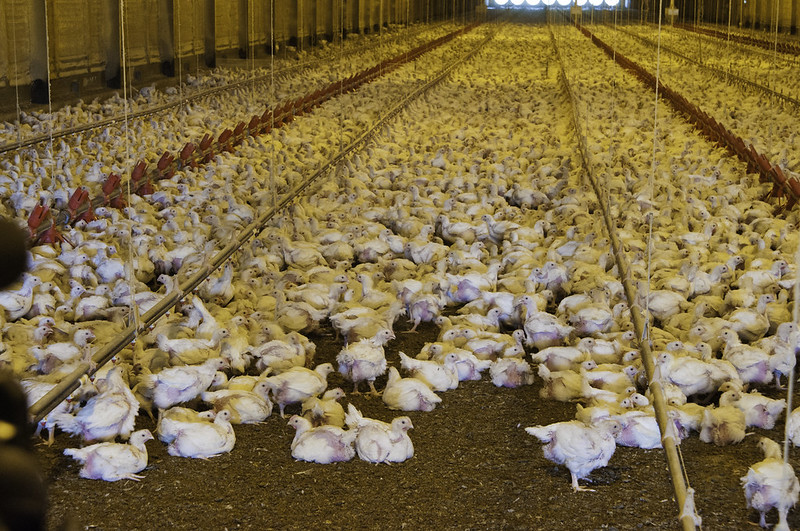The return of the chlorinated chicken? Trump administration uses tariffs to push for radical EU deregulation
CEO | 28 March 2025
The return of the chlorinated chicken? Trump administration uses tariffs to push for radical EU deregulation
This is an excerpt from Corporate Europe Observatory’s Deregulation Watch
Last week, the Trump administration shocked the world by imposing massive tariffs on imports from most countries around the world, including a 20% tariff on EU imports. It soon became clear that Trump will use this as a bargaining tool to force concessions from the EU. This includes bullying the EU to remove so-called “non-tariff barriers”, which means EU regulations that the US government (wrongly) interprets as unfair obstacles to US exports. White House trade adviser Peter Navarro stated that non-tariff barriers, including food safety regulations, are "orders of magnitude" more important than EU tariff rates.
Also Elon Musk, although not a fan of Trump’s tariffs, has used the opportunity to criticize EU regulations and called for “radical deregulation”. US Commerce Secretary Lutnick said on FOX News: “European Union won’t take chicken from America. They hate our beef, because our beef is beautiful and theirs is weak”. The reality is that the EU has banned sale of chlorinated chicken and hormon fed beef due to legitimate concerns over public health and animal welfare. The USTR in a thread on X highlighted the EU’s Deforestation-free Supply Chain Regulation (EUDR) and the Carbon Border Adjustment Mechanism (CBAM) as examples of “unfair trade practices faced by American exporters”. The USTR’s "2025 National Trade Estimate Report on Foreign Trade Barriers", published last month, lists planned EU restrictions on forever chemicals (PFAS), rules for pesticides and GMOs, and numerous other EU regulations as unacceptable.
The TACD, uniting consumer and digital rights groups in the US and EU, slammed the use of coercive tariffs “as a mean to put pressure on digital, data protection, competition, food safety and sustainability policies”. MEPs and EU government officials have called upon the European Commission not give into US government blackmailing. But can a European Commission that has itself embarked on radical deregulation be trusted to stand firm in defense of high regulatory standards?






